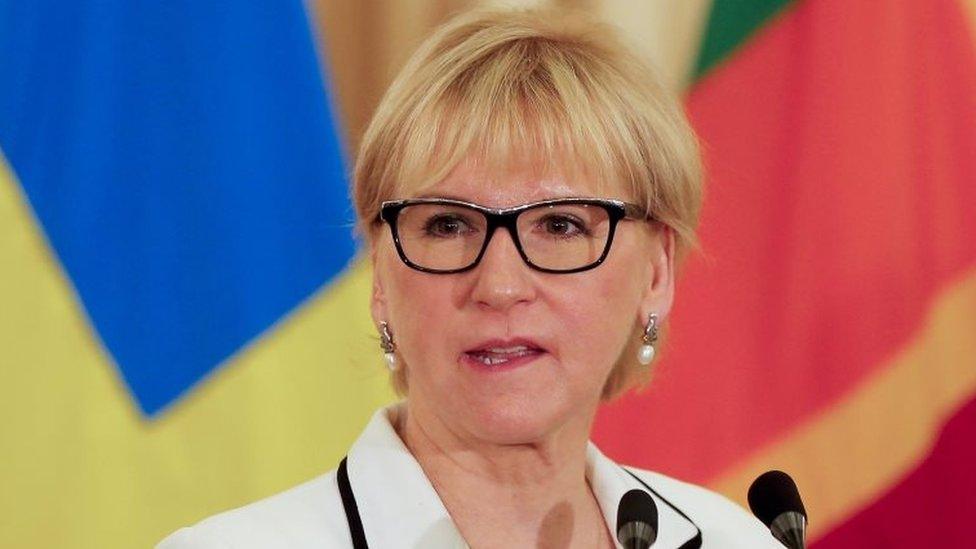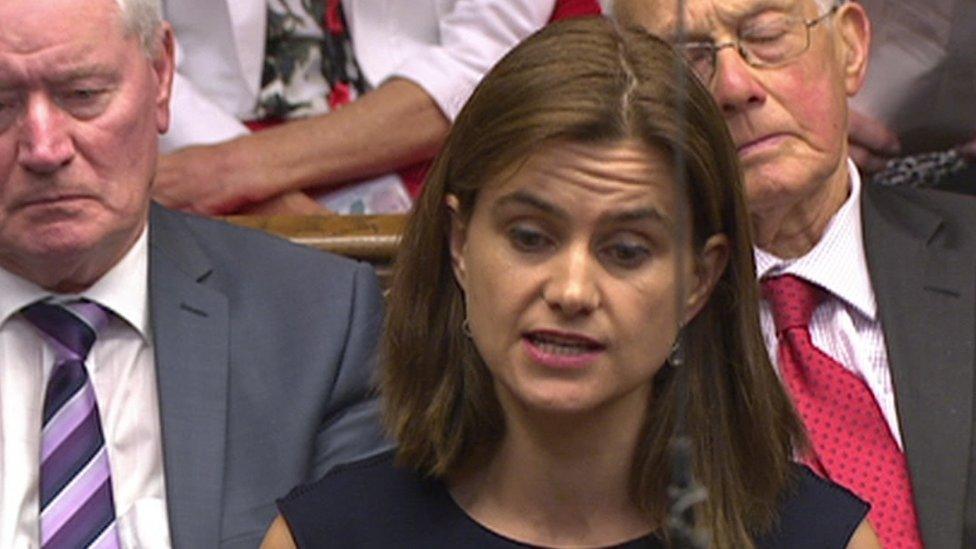Brexit could lead to EU break-up - Swedish FM Wallstrom
- Published

Margot Wallstrom said if the UK voted to leave, other countries could follow
Britain's EU referendum could lead to the break-up of the EU itself, Sweden's foreign minister has warned.
Margot Wallstrom told the BBC a domino effect of demands for referendums and requests for preferential terms by member states could follow.
"The spill-over effect will be unfortunately felt, deeply felt," she said. "It would be bad either way," she added.
The referendum in the UK will take place on 23 June.
A poll for the Independent newspaper,, external published on Friday evening, suggested that the Leave campaign had 10-point lead.
Follow the latest on the BBC's EU referendum live page
Ms Wallstrom said if the UK voted to leave, other countries could follow.
"That might affect other EU member states that will say: 'Well if they can leave, maybe we should also have referendums and maybe we should also leave,'" she told the BBC's This Week's World programme.
But other EU countries could also follow the UK example in the event of a vote to remain in the EU, she said.
"If they stay, it might also lead to other countries saying: 'Well, they negotiated, they asked and demanded to have a special treatment so why shouldn't we?'" she said.
Ms Wallstrom said she hoped the UK would remain in the EU, saying Britain was an important trading partner for Sweden and there were 90,000 Swedes living in the country.
"It will be just a matter of insecurity, and industries don't like insecurity," she said.
The Swedish foreign minister also confirmed the introduction of strict regulations and laws on trading in weapons with countries that were not full democracies.
Last year, Sweden scrapped a controversial arms deal with Saudi Arabia. The Gulf nation then recalled its Stockholm ambassador after Ms Wallstrom criticised the kingdom's human rights record.
- Published5 June 2016

- Published29 April 2016
